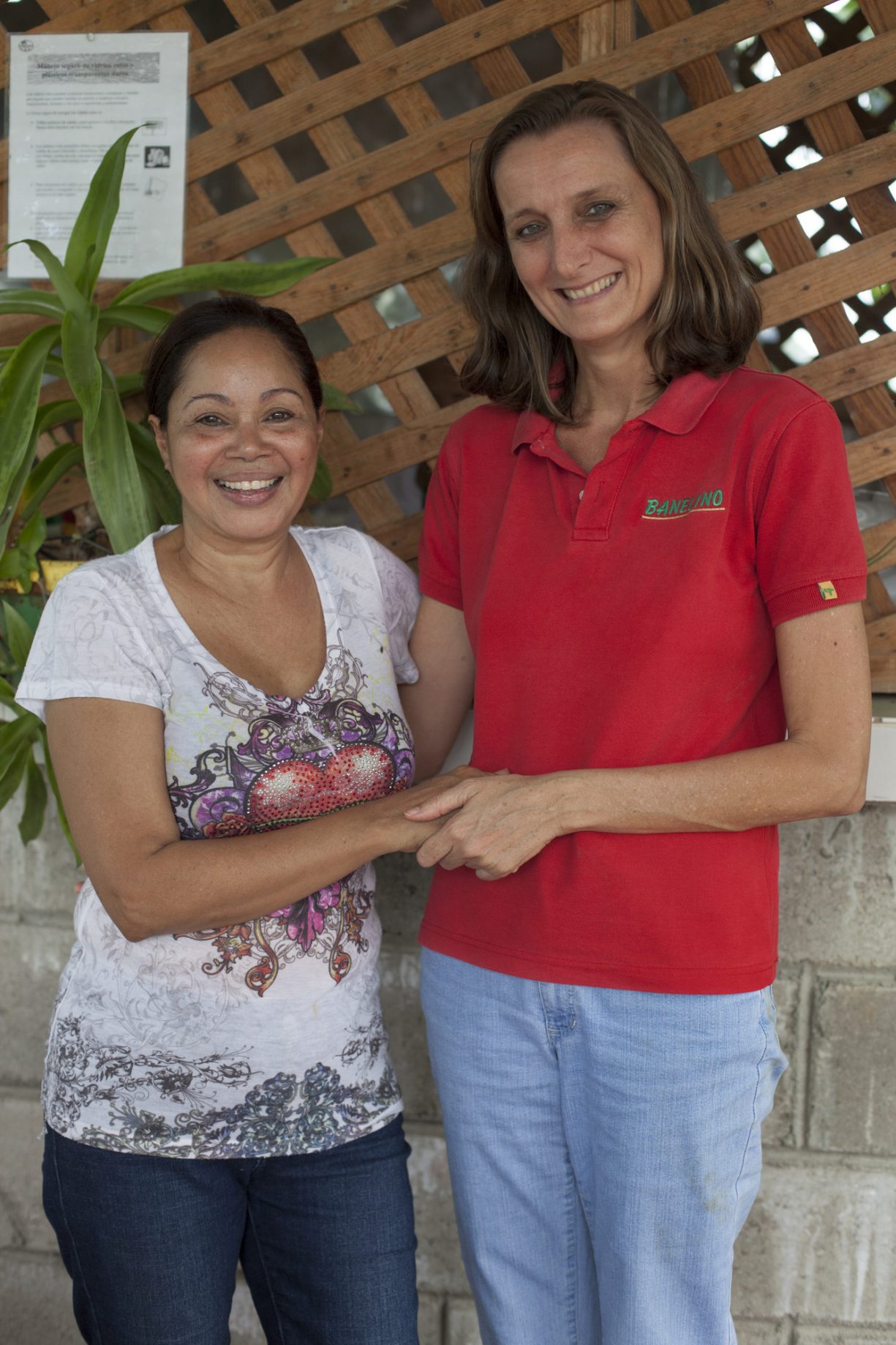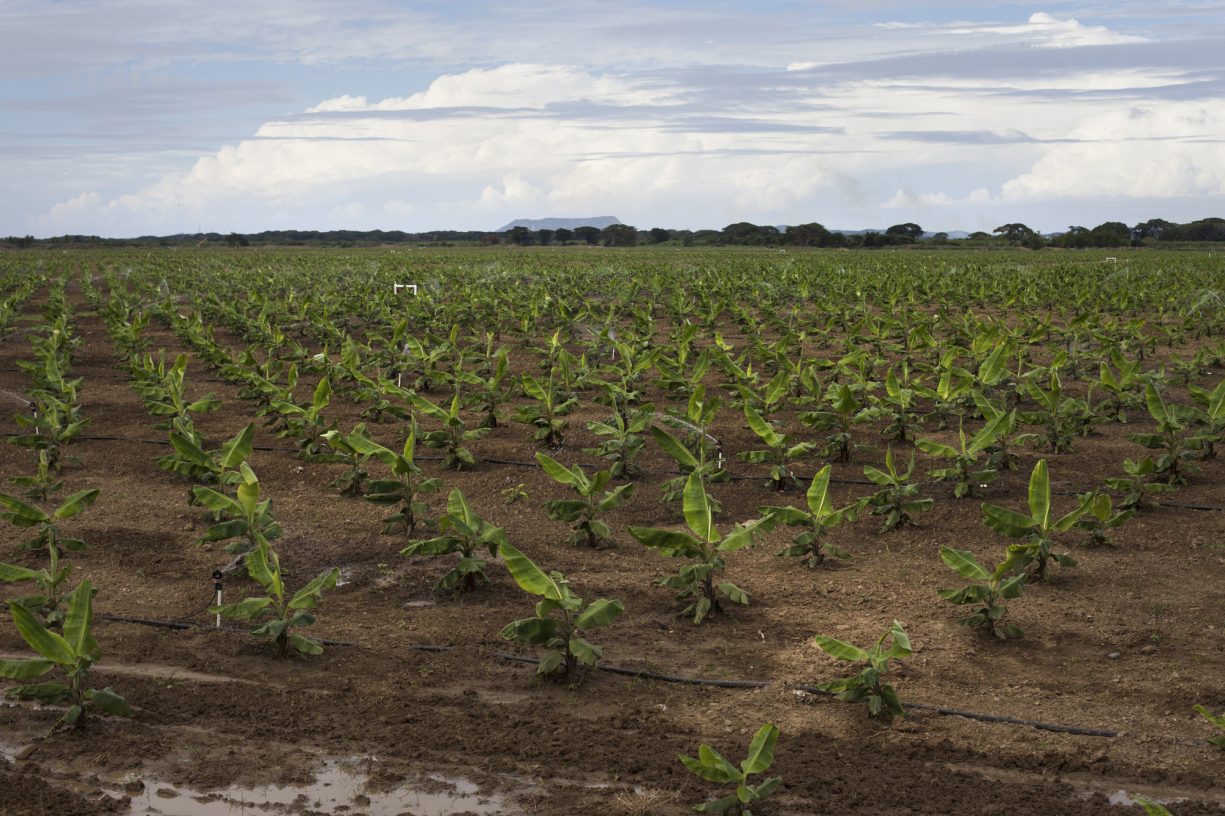Big Deal in the Big Apple
Marike de Peña, Chair of Fairtrade International, writes for PlanetaFuturo/ElPaís about the SDG ratification happening at the UN this week in New York City.
 Even in an increasingly connected world, it’s still a long way from the Dominican Republic to New York. The distance between them can be measured not just in air miles but in the striking differences in poverty, job prospects, life expectancy, infant mortality and a host of other inequalities. From where I’m sitting, in one of the country’s most deprived areas not far from the border with Haiti, the Big Apple seems like another planet. But it’s here, at the Banelino banana co-operative I co-founded nearly twenty years ago, and in countless other small-scale farming operations around the world, that the impacts of decisions made in New York this weekend will be most keenly felt.
Even in an increasingly connected world, it’s still a long way from the Dominican Republic to New York. The distance between them can be measured not just in air miles but in the striking differences in poverty, job prospects, life expectancy, infant mortality and a host of other inequalities. From where I’m sitting, in one of the country’s most deprived areas not far from the border with Haiti, the Big Apple seems like another planet. But it’s here, at the Banelino banana co-operative I co-founded nearly twenty years ago, and in countless other small-scale farming operations around the world, that the impacts of decisions made in New York this weekend will be most keenly felt.
I’m full of hope that by the end of the summit on Sunday evening, the gap – big as it is – might have narrowed slightly. The world’s leaders, from President Obama to Ban Ki Moon, are gathering at the United Nations to agree the Sustainable Development Goals (SDGs) – a new global plan of action for people, planet and prosperity aimed at ending extreme poverty by 2030. Even the Pope is in town to give the SDGs his blessing.
The SDGs are a big deal for the 400 small-scale farmers and their families who make up the Banelino cooperative.
Not to mention the other 500 million small-scale farmers and one billion agricultural workers who supply seventy percent of the world’s food. Yet as is so often the case, the voices of those who are most directly affected by poverty will not be the ones you’ll hear amid the back-slapping and grandstanding at the UN. That’s why Fairtrade will be present at the summit to make sure the farmers are heard and that they play a leading role in bringing about a more equal, just and sustainable society. We can’t take all 1.5 million Fairtrade farmers and workers to New York with us, but we can make sure they aren’t forgotten. We made a great start by having our position officially recognized by the UN back in July.
If the 17 SDGs are fully implemented, they represent a huge opportunity for farmers and workers all over the world to build up enjoy a better future. They cover issues such as decent pay and conditions for plantation workers, gender equality (according to UN stats, women are responsible for 60-80 percent of global food production), climate change (coffee producers are among the hardest hit), human rights, trade justice, sustainable production and consumption…the list goes on. There’s barely a single one of the 169 different action points listed under the SDGs which isn’t related to food and farming. But – and it’s a big but – the SDGs will only be delivered successfully if smallholder farmers and workers play a central role in planning and implementation.
For a start, you can’t have sustainable development for free. Fair prices need to be paid. Fairtrade’s experience shows that you can do trade differently and equitably: it is possible to rebalance trade, to tackle poverty, inequality and exploitation whilst at the same time delivering successful, sustainable, large scale trading within commercial markets. But the SDGs must deliver inclusive trade to benefit the poor, not trade for its own sake.
The UN summit marks the closing of one chapter – the adoption of the SDGs and the end of their predecessors, the Millennium Development Goals (MDGs) – but the beginning of a much more important one. The official, rather grand-sounding description is the “post-2015 development agenda” – which essentially means turning the text of the SDGs into action. Here’s where Fairtrade can really help. We’ve already launched the “Fair Trade Beyond 2015” campaign, endorsed by 200 mayors around the world, and supported by Ban Ki Moon. In October we’ll release our blueprint for implementing the SDGs, which will mobilize business, civil society, governments and citizens to join forces to implement the SDGs.

Fine words and fine ambitions. But what really counts is what’s happening on the ground. At Banelino, as in many other cooperatives in the world, we’re already showing how Fairtrade can make a difference. The Fairtrade premium has been used to fund a program of rural school sponsorship, salaries for teachers, purchasing computers, university scholarships, uniforms and school supplies, school transportation, preventive health-care programs, a dispensary and a health center, as well as environmental and sustainability programs. And that’s just one small banana co-operative in one small country. Just think what governments and business can achieve globally by working with Fairtrade!
Trade is central to the SDGs. Sustainable, equitable trade can boost incomes and deliver lasting impact. But all too often, trade systems and trade liberalization work against the interests of the poor. Fairer trade spreads benefits more equally across the supply chain, results in greater control and more sustainable, resilient businesses. Genuinely sustainable consumption and production protects both people and planet from exploitation.
When delegates go back home after the end of the summit on Sunday, goals and targets will have been agreed for the next 15 years. And then the real work begins: to make the SDGs work for small-scale farmers and workers. Whether you’re cutting bananas on a Caribbean plantation or cutting deals in the corridors of power, maybe it’s not so far from the Dominican Republic to New York after all.
This piece first appeared on PlanetaFuturo/ElPaís on September 25, 2015 and is reproduced with their kind permission.
We’re in this together
Fairtrade America partners with brands on the journey to certification and beyond. We can help with everything from finding a certified supply chain to marketing your newly certified product.
Get in Touch





